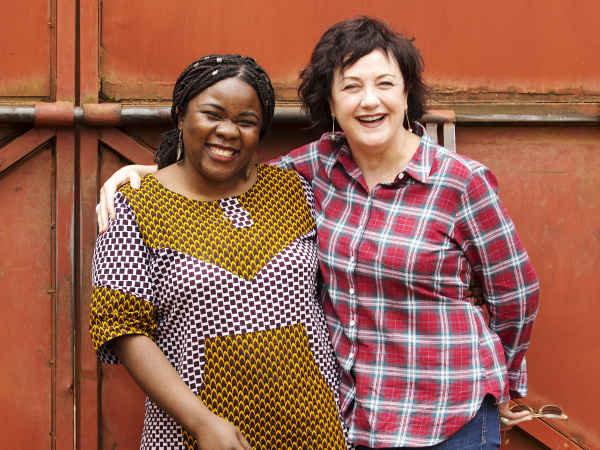Tackling Discrimination in Malawi
13 June 2021

Emmie Chiumia is 38 and lives in Malawi with her husband and 4-year-old son. She comes from a large family of six children and now works as an Assistant HR Management Officer. Emmie also lives with albinism. She says she is “very lucky” because she grew up in a family where she was loved and cared for – but this is not the case for many young people with albinism. Yet, despite her positive family situation, Emmie lives in constant fear and has experienced discrimination in other areas of her everyday life.
"I had troubles during my primary school days because my teachers did not understand my needs. We learnt under the tree and normally I used to leave early because of the sun. I used to lie to my teacher that I was sick but I just could not cope with learning in the sun like other children."
In addition to barriers to healthcare and education, persons with albinism also face much more sinister threats due to existing stigma in Malawi. Since 2014, there have been around 167 reported attacks, abductions and killings of persons with albinism throughout the country. This means that more than 130,000 people are living in fear.
SCIAF, with support from the European Union and in partnership with the CCJP (Catholic Commission for Justice and Peace), have been working to help people with albinism live lives free from fear and violence. Over the past year, SCIAF and partners have been implementing a project in Malawi that comprehensively promotes and protects human rights and ensures access to healthcare and justice.
Part of the project’s work is to reduce stigma and increase social interactions between people with albinism and their families and communities. Emmie, along with 23 other volunteers, has been chosen to serve as a Community Rights Group representative and has received training in order to act as a crucial link between the project and targeted communities.
Emmie’s responsibilities involve conducting awareness campaigns on human rights and albinism, monitoring accessibility and availability of sunscreen in local health facilities and reporting any human rights violations against persons with albinism to authorities.
Emmie describes how the project has empowered her to speak out for herself and other persons with albinism to create lasting change:
"I believe that for our needs to be known we have to be part of the decision-making committees at a local level. I am now able to report cases of violence against my fellow persons with albinism to different government institutions such as the police. I am also now confident enough to stand before an audience and share with them knowledge on human rights and albinism."
Thanks to support from you, and the European Union, Emmie and other persons with albinism in Malawi now have access to the healthcare support, legal resources and training that they need to enable them to speak up and report incidences of injustice when they occur. Over time, the project hopes to enable persons with albinism in Malawi to live healthy and full lives – without fear and discrimination.
When asked about the future for people with albinism in Malawi, Emmie is hopeful:
"My hope is that more people in Malawi will be able to understand albinism and start treating us with the dignity that every human being deserves."


The Scottish Government has given grant funding to SCIAF so we can help communities recover from the damages caused by the climate crisis.

SCIAF are extremely saddened to share the news that 5 people who were part of SCIAF’s work in Malawi, have died because of Storm Ana.

Lorraine McIntosh of Deacon Blue travelled with SCIAF to see work with women affected by sexual violence in the Democratic Republic of Congo
Next
Back to